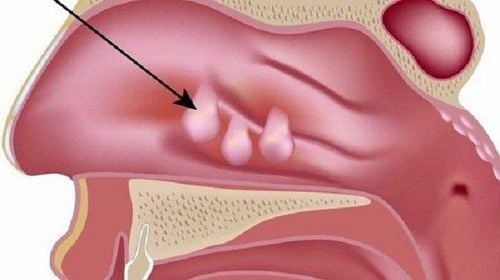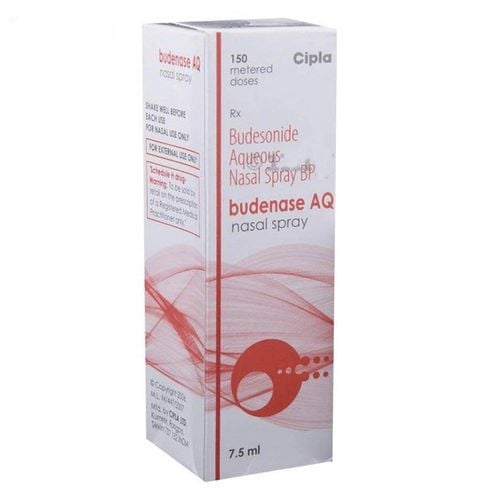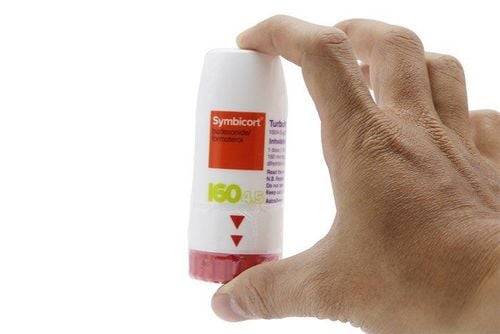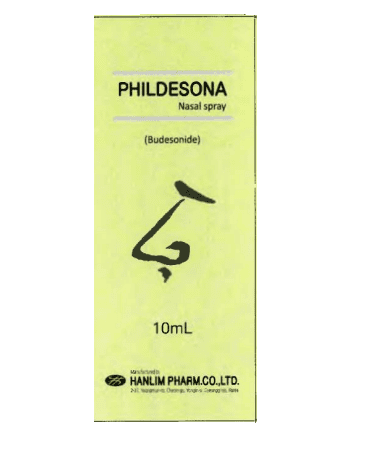This is an automatically translated article.
The article was professionally consulted with Specialist Doctor I Le Van Quang - Department of General Surgery - Vinmec Nha Trang International General HospitalNasal polyps should be operated on is a question many people have when being diagnosed with nasal polyps. Because in many cases nasal polyps do not cause any serious health effects, but sometimes they lead to many dangerous complications such as acute or chronic sinusitis, obstructive sleep apnea, structural changes. The structure of the face causes double vision (double vision) or the eyes are abnormally far apart.
1. What are nasal polyps?
Nasal polyp is a soft, painless, noncancerous growth that develops on the lining of the nose or sinuses. Nasal polyps are conditions that occur in the lining of the nose and the sinuses, which are the four empty spaces above and behind the nose. However, nasal polyps are not usually considered pathological. More precisely, this is the result of an inflammatory response caused by a bacterial or viral infection, an allergy, or the body's immune response against the fungus.
Chronic inflammation increases the permeability of blood vessels in the lining of the nose and sinuses, causing water to accumulate inside the cells. Over time, under the influence of gravity, these water-filled tissues are pulled downward, forming polyps.
Nasal polyps can happen to anyone, but are more common in people over 40 and in children with conditions such as asthma, chronic sinusitis, seasonal runny nose, and cystic fibrosis.
Nasal polyps cause the following conditions: Difficulty breathing, constant runny nose, changes in smell. It could be a symptom of allergic rhinitis or chronic sinusitis. But in some cases, those symptoms and signs may be caused by nasal polyps, benign, soft tissue buds that develop from the lining of the nose and sinuses. Small nasal polyps cause few symptoms, but large polyps will make it difficult to breathe and reduce the sense of smell. They also cause dull headaches and snoring. In rare cases, polyps that are too large can change the shape of the face.
2. Symptoms
Small nasal polyps may not cause symptoms. However, larger nasal polyps can make it difficult to breathe, can't smell, and cause frequent infections.
Common symptoms:
Runny nose on one side; Prolonged stuffy nose; Postnasal drip; Reduced or absent sense of smell; Loss of taste; Facial pain or headache; Pain in the upper teeth; Feeling pressure on the forehead and face; Snoring; Itching around the eye area. When do you need to see a doctor?
Severe shortness of breath; Symptoms suddenly worsen; Vision problems, reduced vision, or limited eye movement; Severe swelling around the eye area; A worsening headache accompanied by a high fever or an inability to keep the head straight.

Polyp mũi là một u có cuống mềm, không đau, phát triển trên niêm mạc mũi hoặc xoang
3. Complications
Small and solitary nasal polyps rarely cause complications, but one large polyp and many smaller polyps (polyposis=polyposis) can cause the following complications:
Acute or chronic sinusitis. Sleep apnea - a dangerous condition in which the patient stops breathing and breathes again and again during sleep (sleep apnea). Structural changes of the face causing diplopia (double vision) or abnormally far apart eyes. This complication is rare and occurs most often in cystic fibrosis patients.
4. Treatment
Treatment of nasal polyps has two main methods: medication and surgery. With small polyps, causing no serious problems, few complications, the patient may be prescribed medication. Note that during drug treatment, it is necessary to strictly follow the instructions of the doctor to avoid unwanted side effects.
Surgery is the treatment of choice when polyps are large, causing shortness of breath, reduced or lost sense of smell, tinnitus... Patients may have laparoscopic surgery to remove polyps and sinus surgery to create ventilation in the nose and sinuses. and reduce the chance of polyp recurrence.
Based on the extent of polyps and the patient's general condition, doctors will advise choosing the most appropriate treatment method. In general, each method has certain advantages and limitations. Laparoscopic polypectomy is the fastest method to reduce polyp volume, but it can recur if not monitored and treated with drugs after surgery.
Medical treatment is the most common treatment for small polyps. For large polyps that require surgical removal, however, nasal polyps often recur. Meanwhile, drug treatment is mainly Corticosteroides: systemic route (oral or injected) has a faster effect than local, but has many side effects and contraindications, so it is less preferred than topical corticosteroids (drugs). spray into the nasal cavity). Anti-allergic and anti-infective drugs can be combined: in addition to the treatment of polyps, additional control of allergies and infections is required.
Use antihistamines , to fight allergies caused by the body's exposure to allergens. Antihistamines relieve nasal congestion, although they do not eliminate polyps. In addition, more antibiotics are needed for acute sinus infections. Although local treatment methods have limited side effects, the treatment time is long and the effect is slow.
Surgery
Nasal polypectomy is used for large polyps, but this condition often recurs, even after surgery.
In many cases, doctors need to surgically remove nasal polyps. Indications for nasal polyp surgery when polyp size is too large and when medications do not prove effective. For patients with cystic fibrosis who have nasal polyps that are resistant to corticosteroids (an anti-inflammatory drug), nasal polypectomy is the only option. The type of surgery depends on the number and location of polyps.

Dấu hiệu song thị (nhìn đôi) là biến chứng của polyp mũi
5. Precautions
Avoid stimulants: patients should stay away from irritants such as pollution, dust, pollen... because irritants make inflammation worse or irritate the sinuses causing allergies . Definitive treatment of asthma or allergies because these are diseases that easily cause nasal polyps. Maintain good nasal hygiene by regularly washing hands, prevent bacterial infection by viruses that can cause allergic rhinitis and sinusitis. Keep the surrounding environment humid, especially indoors to improve breathing in the sinuses, avoid congestion and inflammation Performing regular nasal irrigation with saline also helps to improve air circulation in the nose. Easily, remove allergens and other irritants. Vinmec International General Hospital is one of the hospitals that not only ensures professional quality with a team of leading doctors, modern equipment and technology, but also stands out for its examination and consulting services. and comprehensive, professional medical treatment; civilized, polite, safe and sterile medical examination and treatment space.
Please dial HOTLINE for more information or register for an appointment HERE. Download MyVinmec app to make appointments faster and to manage your bookings easily.













